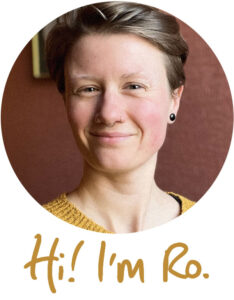How To Find the Best Therapist for You

Finding a therapist, coach, or counsellor can be difficult. There are hundreds of different forms of therapy alone, plus considerations around values and lifestyle to take into account. I talk to many folks who have struggled with therapy because they didn’t feel safe to talk about sex or different relationship styles, or who felt that endless talking about their problems wasn’t actually helping very much.
While longer-term psychotherapy and counselling is an important part of treatment for specific mental health diagnoses such as depression or BPD, shorter-term coaching can be a great alternative for people who are otherwise mentally healthy and need some support to work through specific challenges. Coaching is typically more focused on a specific outcome or intention than counselling or psychotherapy – for example, in my coaching practice, I often work with people who want to feel more able to respect theirs and others’ boundaries, more comfortable in their own skin, more relaxed in their sexuality, or more able to express their emotions without fear.
If you know you need some support and you’re looking for the right person to work with, below are some points to consider. At the end of the article I also give a brief description of some of the most common forms of therapy, to help you make sense of some of the different approaches practitioners use.
1. Request a quick chat first
Many therapists, coaches, or counsellors will be willing to schedule a quick chat with you before booking a session, so that you can see whether it feels like a good fit. Others may offer a discounted first session as an alternative. You can ask them some questions about how they work and bring up any specific needs or concerns you’d like to talk through with them – and there’ll be plenty of ideas for things you can ask them about in this article. If nothing else, it can be a good opportunity to feel into whether you find them approachable and easy to talk to, and whether you feel heard by them.
2. Can they talk clearly about the approaches they use?
There are so many different approaches to therapy and counselling that it can be difficult to know which would be a good fit for you. I’ve listed some of the main ones at the end of this article. Many people are happy to go with the person that they feel most comfortable with without doing too much research into different approaches, and that’s great. If you do know that you want a specific type of approach however, then it’s important that you can talk with a potential therapist, coach, or counsellor about how they work.
For example, some people know that they want to be asked challenging questions by their therapist, while others want nothing more than an empathetic, listening ear. Or you might know that you’d like to try a more somatic, body-based approach, rather than lots of talking and analysing. If you know you have preferences, then it’s important that you can understand how someone works to see if it would be a good fit.
3. Do they have specific training or experience with any of the themes you want to bring?
If you know you have something specific you want to work through, it may be helpful to check whether they have experience in this area. This might be related to specific events such as sexual assault, grief, or divorce, or it might be more about checking compatibility with your identity and lifestyle. For example, LGBT+ folks may want to make sure that any therapist they see will recognise and respect their gender expression and sexual orientation. People who include kink as part of their sexual expression may want to ensure that their therapist is sex-positive and kink-friendly if they want to bring aspects of their sex life to therapy, and polyamorous folks may need someone who is familiar with and accepting of different relationship styles.
One resource I recommend a lot is Pink Therapy, which is a directory of therapists who are welcoming of LGBT+ identities, sexual and gender diversity, and various relationship styles.
4. Do they clearly list their qualifications on their website?
It’s important that you know whoever you’re interested in working with is qualified! Make sure to check their website for details on where they trained, what qualifications they have, and which professional bodies they are a member of. Neither ‘therapist,’ ‘counsellor,’ nor ‘coach’ are protected terms in the UK, meaning anyone can call themselves these things without needing any training. Organisations such as the BACP and UKCP in the UK accredit therapists and counsellors, so you know that members of these bodies have received a certain quality of training and abide by ethical standards. A range of similar organisations exist for the coaching profession, too.
5. Do they have supervision?
Having supervision means that a therapist has someone they can talk to about their practice, where they can bring any challenges they’re having and receive guidance and feedback (while maintaining their client’s anonymity). This might be someone with more experience than they have, a group of peers, or someone trained specifically in supervision. Choosing a therapist who has regular supervision tells you that they are invested in making sure they have the support they need in their practice. It means that their clients benefit from that support too, and from any guidance they receive from their supervisors.
6. Do they have any specific trauma-informed training?
There’s a current trend towards ‘trauma-informed’ approaches right now, and some practitioners will specifically say that they work in a trauma-informed way. If you know that you have specific trauma you want to work through and process in sessions, make sure that they are qualified to do this. For example, while I am qualified to support clients in identifying and containing their trauma, I am not qualified to process specific traumatic events with clients, and will refer a client on if that’s something they wish to do.
7. Which therapeutic approach is right for you?
Here are some common types of therapy, and a brief explanation of each:
- Cognitive Behavioural Therapy (CBT) is based on the idea that you can change your behaviour by changing your thoughts. This is a ‘top-down’ approach – it begins with identifying and changing the content of your mind. You’ll generally work with the present situation without needing to go into detail about your past or your history.
- Somatic Experiencing is a ‘bottom-up’ approach in that it starts with the sensations you can feel in your body, without needing to make sense of them with your mind. You’ll be guided to feel and describe what is there to be felt, and express, move, and resolve it in the body.
- Psychodynamic Therapy is an in-depth form of talk therapy, based on Freud’s theories of psychoanalysis. It focuses on repressed memories, emotions and the unconscious, often originating in childhood. The aim is to bring everything to light so that it can be acknowledged and examined.
- Gestalt Therapy is an approach which is focused on present day feelings and responses to things that happened in the past, and how these are affecting you now. You’ll be encouraged to feel your feelings so that they can be seen and resolved, rather than only trying to rationalise or explain them.
- Humanistic Therapy has a similar approach to Gestalt therapy, in that it deals with present-day feelings and responses. Therapist and client are seen as equals, and there is an emphasis on creating a non-judgemental space where there is a container of support, empathy, and trust.
- Transpersonal Therapy grew out of the Humanistic approach and takes a holistic view of healing, aiming to help clients develop their spiritual self and find more meaning in their life. This may include guided meditation, visualisation, and mindfulness practices.
- Integrative Therapy means that the therapist will use different tools and approaches that they feel would be the best fit for the client, rather than sticking to one specific modality.
- Internal Family Systems therapy (IFS) is an approach which focuses on identifying and working with the clients sub-personalities, or parts. These parts may be acting in ways that don’t serve the client (such as by suppressing emotions or engaging in addictive behaviour), and the aim of therapy is to heal these parts and bring them into a better balance with one another.
- …Plus many others! New models are being developed all the time, often as a blend of previously established approaches. For example, the way I work includes techniques from Somatic Experiencing, Gestalt Therapy, IFS, Transpersonal Therapy, and likely a few others too. Understanding some of the most common types of established therapy can help you to make sense of newer methods, by understanding their influences.
If you have specific relationship challenges you want to work through, I’m happy to talk more with you about the way I work and whether it could be a good fit for you. You can contact me directly here, or read more about the way I work and arrange a chat here.



